When was the last time you focused on World War I (WWI)? Personally, it has been a long time since I even thought about it.
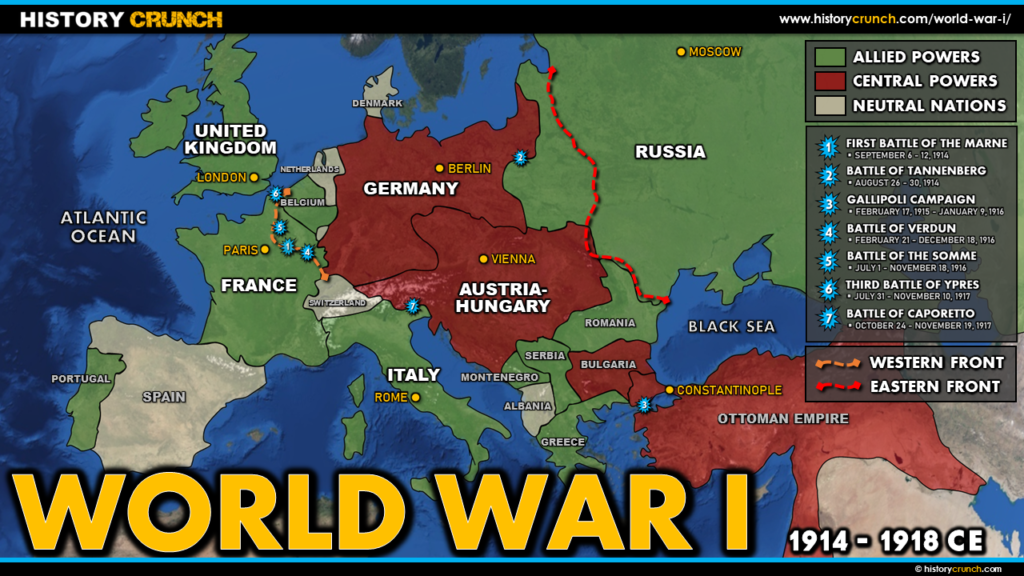
WWI was brought back to life for me and Ian this past week when we visited the award winning Kobarid Museum in Kobarid Slovenia.
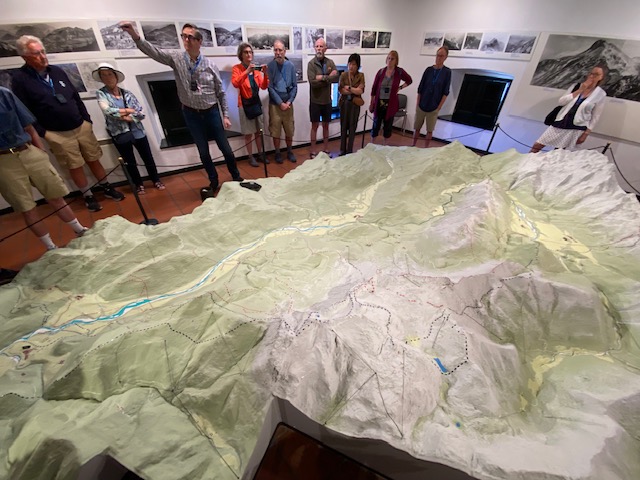
We were lucky enough as part of the Rick Steves Tour that we are on to get a tour guided by the Museum’s director.
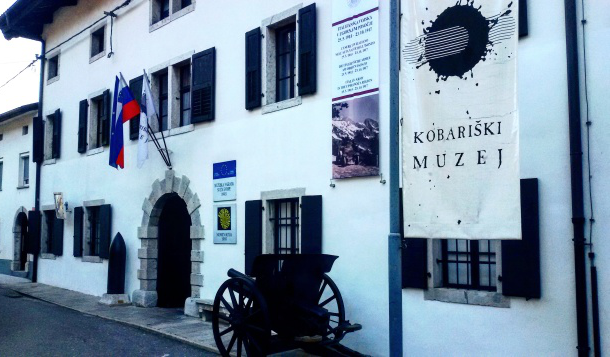
The experience was so powerful for both of us.
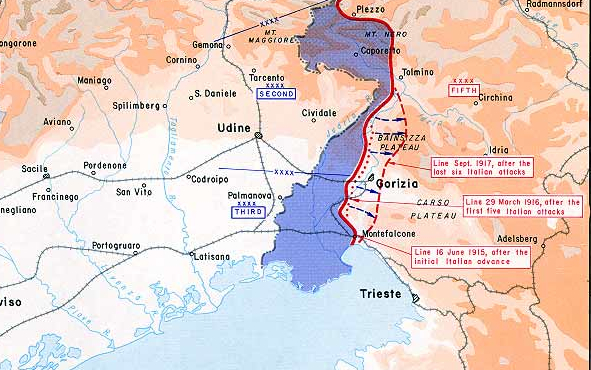
Although WWI lasted four years a little over 100 years ago, we heard the stories of what occurred during the 29 months (1915-1917) of fighting on the Isonzo Front, in the Upper Soca River region, in the Julian Alps which includes Mount Krn and Mount Batognica, in what is now Slovenia. This region and this time period were the site of one of the most extensive mountain warfares in human history.
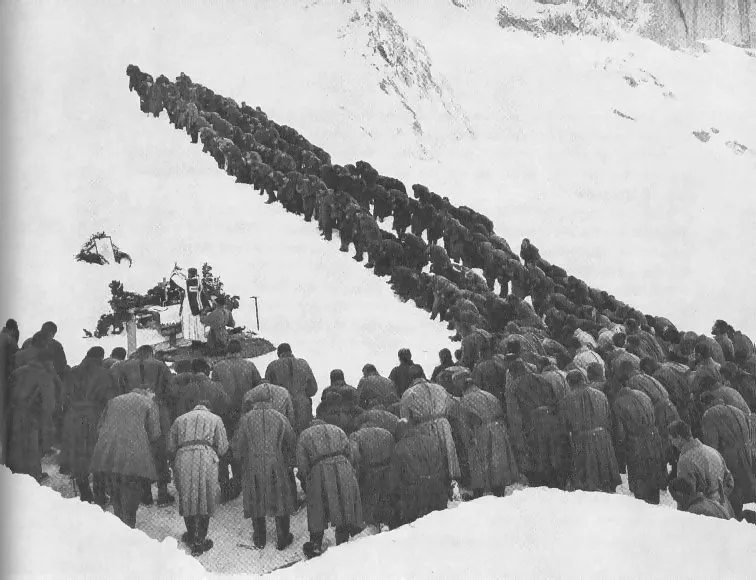
The visit to the museum made us want to do two things.

One, come back in the future to hike the Walk of Peace, a 142 mile trek from the Alps to the Adriatic Sea. It connects 300 World War I heritage sites, including many of the trenches and bunkers that were so much a part of the struggle.
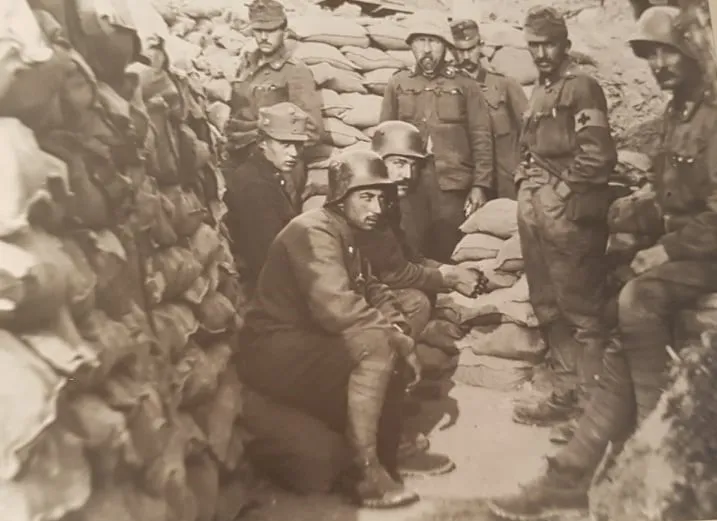
And secondly, the Museum visit made us want to learn more about WWI. If you believe in the value of knowing history, are there any lessons learned from WWI that just might possibly be helpful as we in the United States and, for that matter, the rest of the world face the current Ukrainian/Russian War, not to mention future possible conflicts.
The first reaction that came through to me was how idiotic and nonsensical and insane are certain activities, actions and decisions made and undertaken during war time. For example, the trenching, bunkering, cave work, stonework fortifications that were ordered to be done by both sides of the conflict on the hill tops and mountain tops along the Italian-Austrian front took a herculean amount of effort by soldiers. They did so in brutal weather conditions with freezing temperatures, 15 and more feet of snow and into ground that was frozen in a very difficult terrain. It was trench warfare under unbearable conditions that lead to never ending stalemates over the 29 months. It was a war of two entrenched armies. It was a static war where no major advances or conquests ever took place, yet bloody battles took place during 12 major offensives.
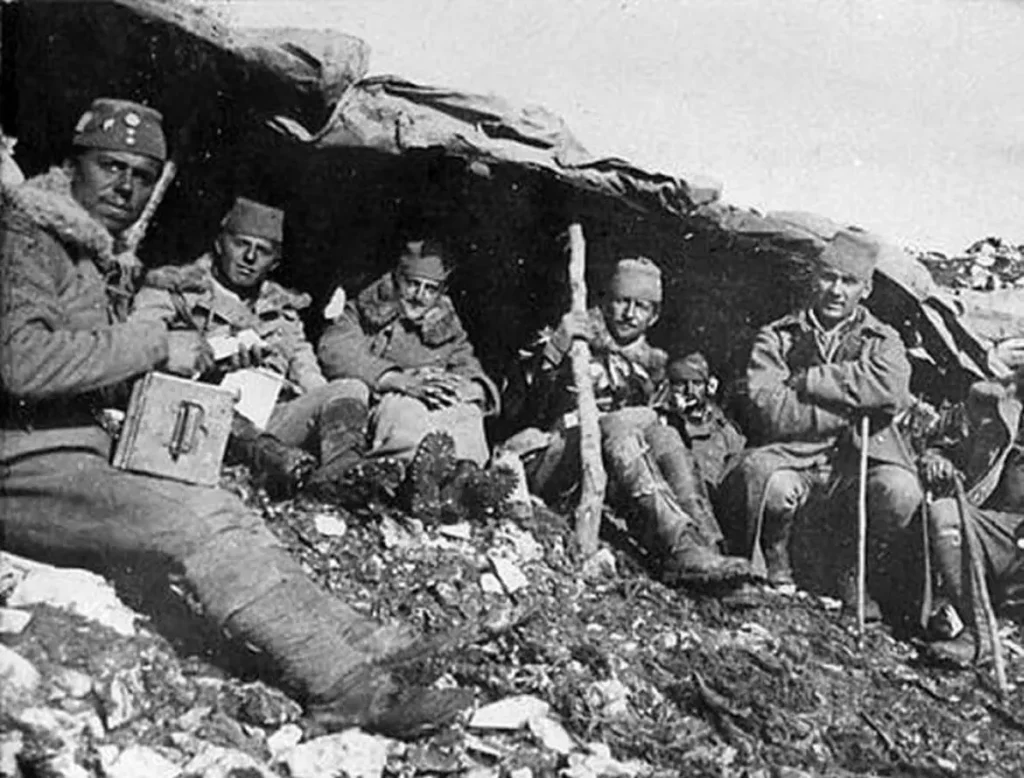
Graham Allison, international relations scholar, said that for him the most important lesson learned from WWI was that “despite the fact that there’s many reasons for believing that something would make no sense, and therefore would be incredible, and therefore maybe even impossible, shit happens.”
My step-daughter Cynthia Smith, who just retired as Professor of World History for 32 years and whose dissertation was on WWI, wrote “In terms of lessons to be learned, the major lesson from any war in history, and especially World War One, is the fallacy and idiocy of military and political leaders who think they can predict the course and outcome of a war. NEVER has a war played out according to well laid military and/or political plans and projections. War always is bigger, more complicated, certainly more costly than either aggressors or defenders predict. WWI is the classic example of this – the war had a life of its own and no one that fought it came out a ‘winner’ by any calculation.”
For the major players in WWI the war was ruinous and suicidal, yet they perpetuated it. The leaders of the major powers at the beginning of the war were not in power at the end. Four of the major participants – Russia, Germany, Austria-Hungary, and the Ottoman Empire — had their governments overthrown by revolutions before the war ended, and two major powers – England and France — saw the beginning of the decline of their empires.
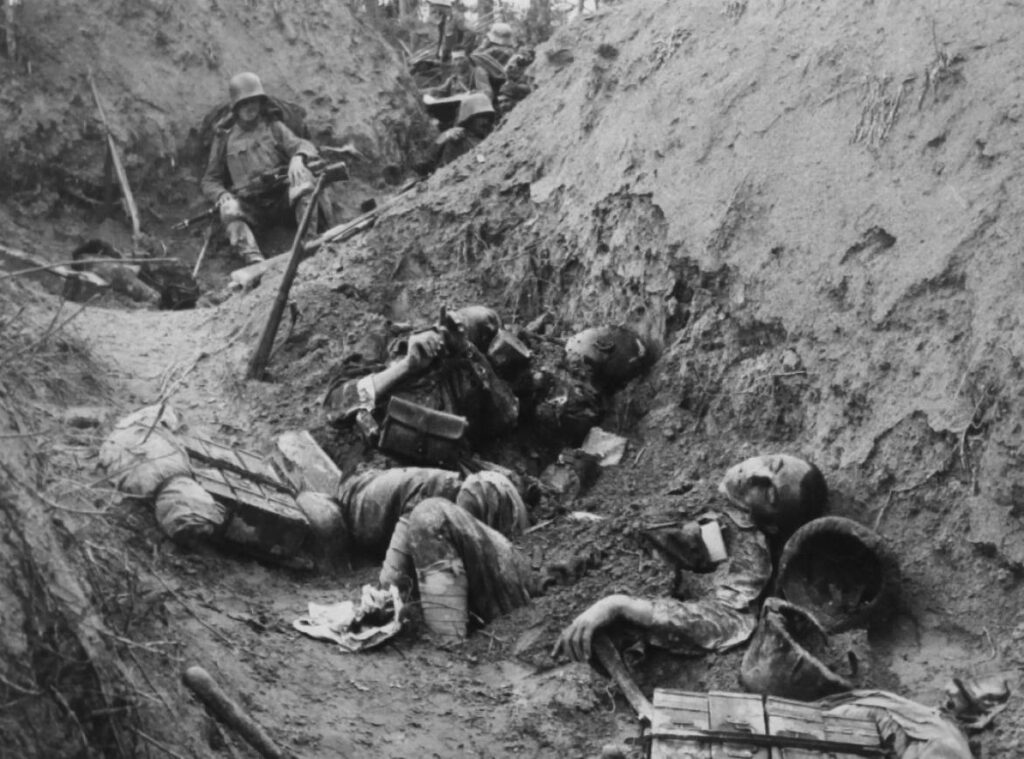
The second reaction that came through so clearly from the time we spent in the museum was the absolute horror that war can bring to individuals, families, communities, and nations. The deaths (16.5 million), the casualties, the deformations and the destruction. I saw pictures of men whose faces were so mangled and distorted that I had to turn my head aside. I could not look at them any longer. It was gruesome.
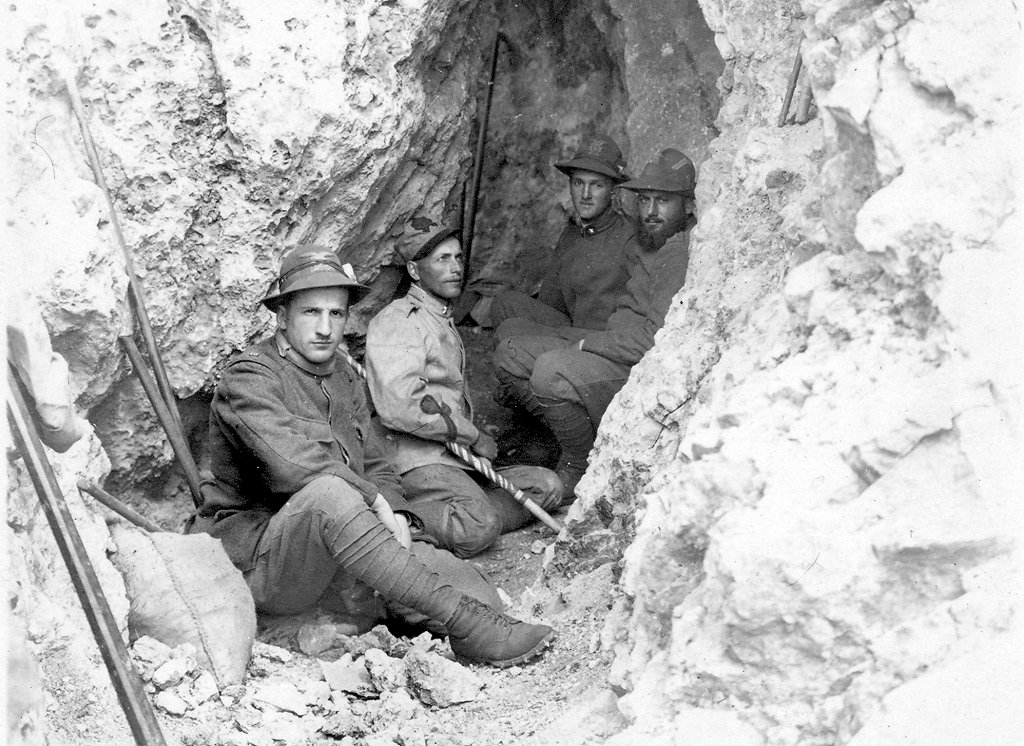
The museum transmitted to us the feeling of the men and women in the war – their stress, suffering, and distress. What cries out from the museum is damn all war. For me it was like going to the Holocaust Museum in Washington D.C. I came away with the same feeling that I never ever wanted to get into a war where such atrocities and horrors could occur again. When you think that the great majority of the men who fought during these 29 months had never been on a battlefield before, it takes your breath away.
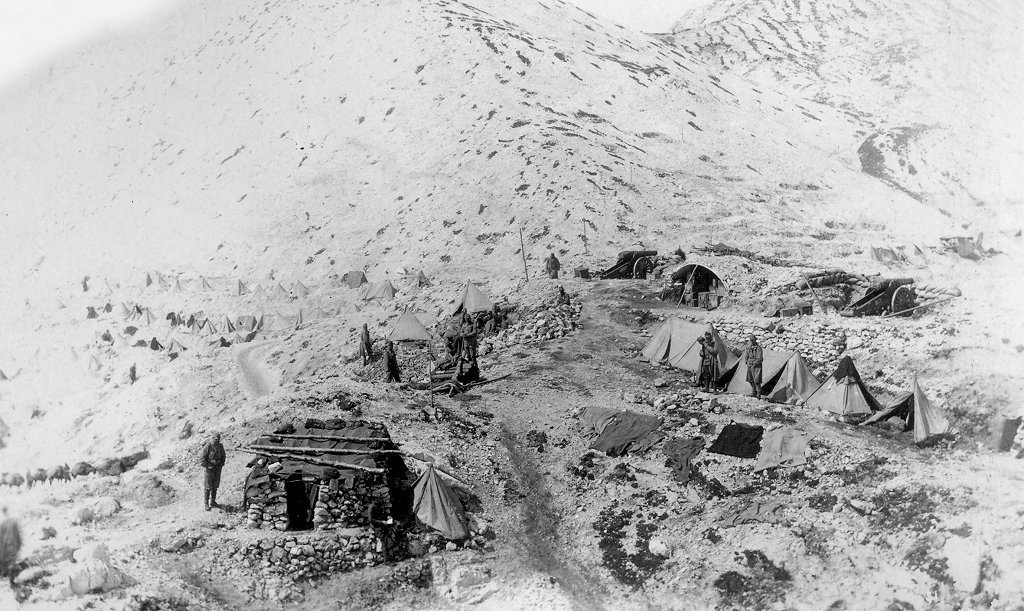
Soldiers on both sides were decimated. It was a debacle.
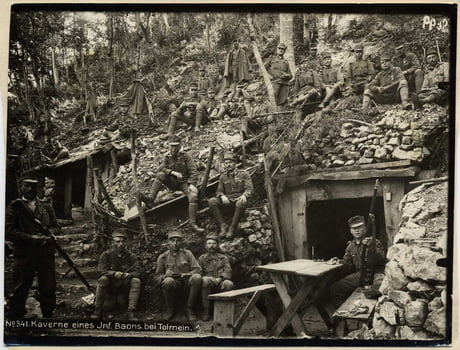
Finally, although the museum did not focus on the peace at the end of the war, it seems pretty clear that “a bad peace just means more war,” as noted by Brian Frydenborg of the Modern War Institute. What brought this to my mind was learning that the leader of the German troops in the Julian Alps was first lieutenant Erwin Rommel, who would go on to play a significant, terrifying role in WWII.
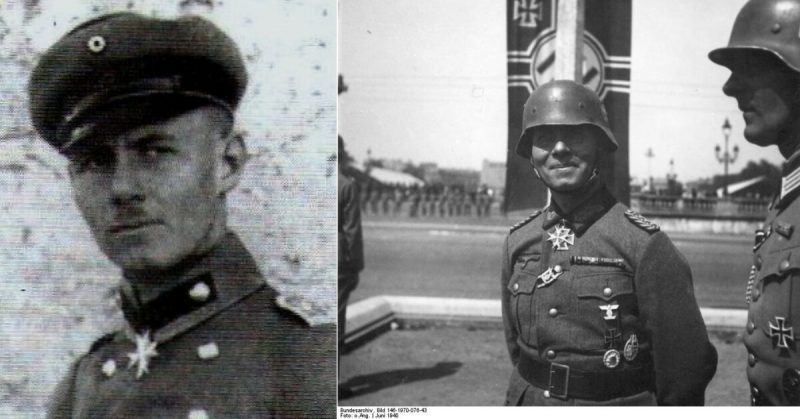
Going to this small museum in Kobarid Slovenia was a powerful experience for both Ian and me. Hopefully we and society as a whole can learn from history some of the lessons of World War I.
In answer to your query about the last time you thought of WWI: in 2011, I delved into it in London after exposure to the horrifying role of horses, portrayed by the amazingly life-sized wooden horse puppets in “War Horse”, at the National Theatre in London. WWI was the last war in which horses were used…
When we skied at the Sellaronda in the Dolomites in 2019, we went to ski on the glacier at 11,000 feet. Two thirds of the way up you change gondolas, and there is a museum about WWI. It has pictures and artifacts of the gruesome winter fighting in the mountains. Horrific conditions to live through the cold, without even a battle where so many died.
I took a course from Graham Allison in college. You should read his latest book on “The Coming War With China.” Really scary.
And humans never learn, never did and probably never will. Just look at Russia and Ukraine right now in 2023, neither is winning yet all of humanity is losing. Wouldn’t it be better if the leaders, instead of sending the offspring of others to fight, went by themselves instead and engaged in an enthusiastic rousing round of leg wrestling with winner takes all? At least there’d be something to take!
If the Holocaust Museum in DC revolted you Neil, stay away from Israel’s Yad Vashem in Jerusalem, It’s even gorier. We visited it 40 years ago and it left us speechless, even more so than the one in DC did. Maybe because it was the first, or because we were younger and more naive.
Thank you Neil for the summation and description and of the museum. It has been a pleasure to be on the Rick Steves trip with you and Ian.
I’ve not spent much time before this trip thinking about WWI, except knowing that my grandfathers were soldiers in it. Years ago I read about Nicolas and Alexandra during that time period. This has just been a taste and there is so much more to return to learn and to see and experience. Thank you for sharing your thoughts in the blog.